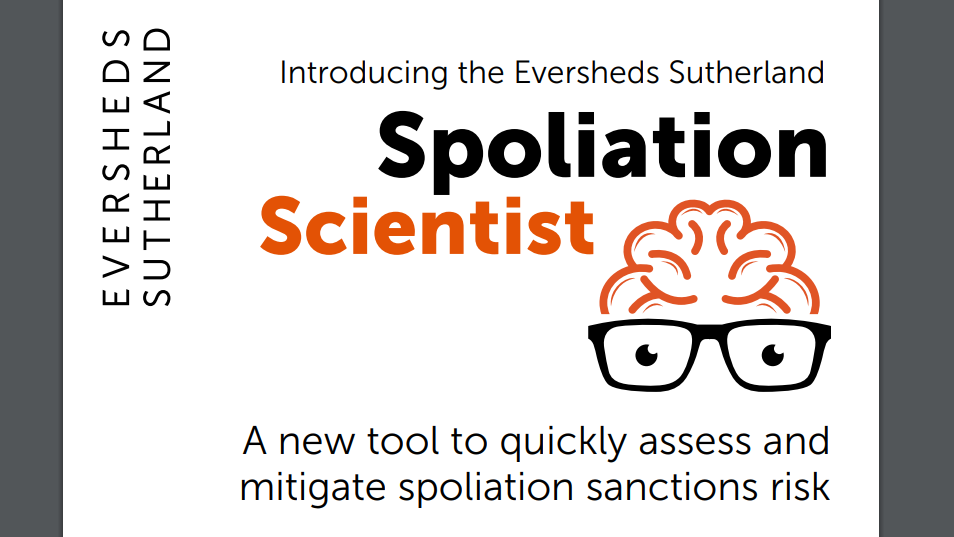One of the riskiest aspects of litigation practice is spoliation — the destruction or alteration of evidence — which can carry costly sanctions for both lawyers and their clients.
Today, the law firm Eversheds Sutherland and the legal research company Fastcase are releasing what they say is a first-of-its-kind tool designed to assess this risk.
Spoliation Scientist is a data analytics tool that uses artificial intelligence, text analytics and data visualizations to assess spoliation risk in any federal or state court in the United States.
According to an announcement this morning, the tool allows clients operating in multiple jurisdictions to quickly identify areas of risk, direct focus and better budget and forecast for specific discovery-related expenses.
The tool uses a combination of Fastcase’s legal research data, professional review of automated data tagging by the Fastcase AI Sandbox technology, and content expertise to establish a visual database of cases where a judge ruled on a claim of spoliation and the sanctions imposed where spoliation was found, the announcement said.
“Spoliation findings can result in severe penalties and the issue is top of mind for any litigator and in-house counsel,” Greg Kaufman, Eversheds Sutherland litigation partner and member of the firm’s Litigation Technology Working Group, said in a statement. “Being able to see with a few clicks, in any jurisdiction across the U.S., how often spoliation has been ruled on and what the decision was is an extremely valuable insight that we are now able to provide to our clients.”
Eversheds and Fastcase said that the process and technology they used to build Spoliation Scientist can be applied to other unique data sets within the litigation process, which will allow Eversheds to better advise their clients on risk and potential outcomes.
For more information on the Spoliation Scientist, visit https://us.eversheds-sutherland.com/Client-Tools/Spoliation-Scientist.
 Robert Ambrogi Blog
Robert Ambrogi Blog